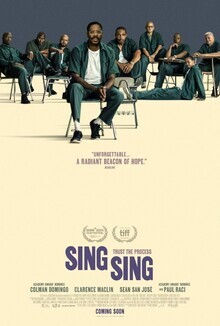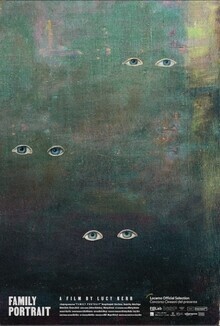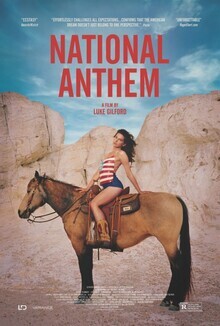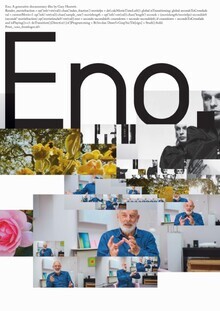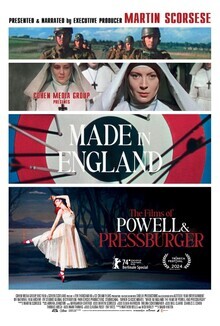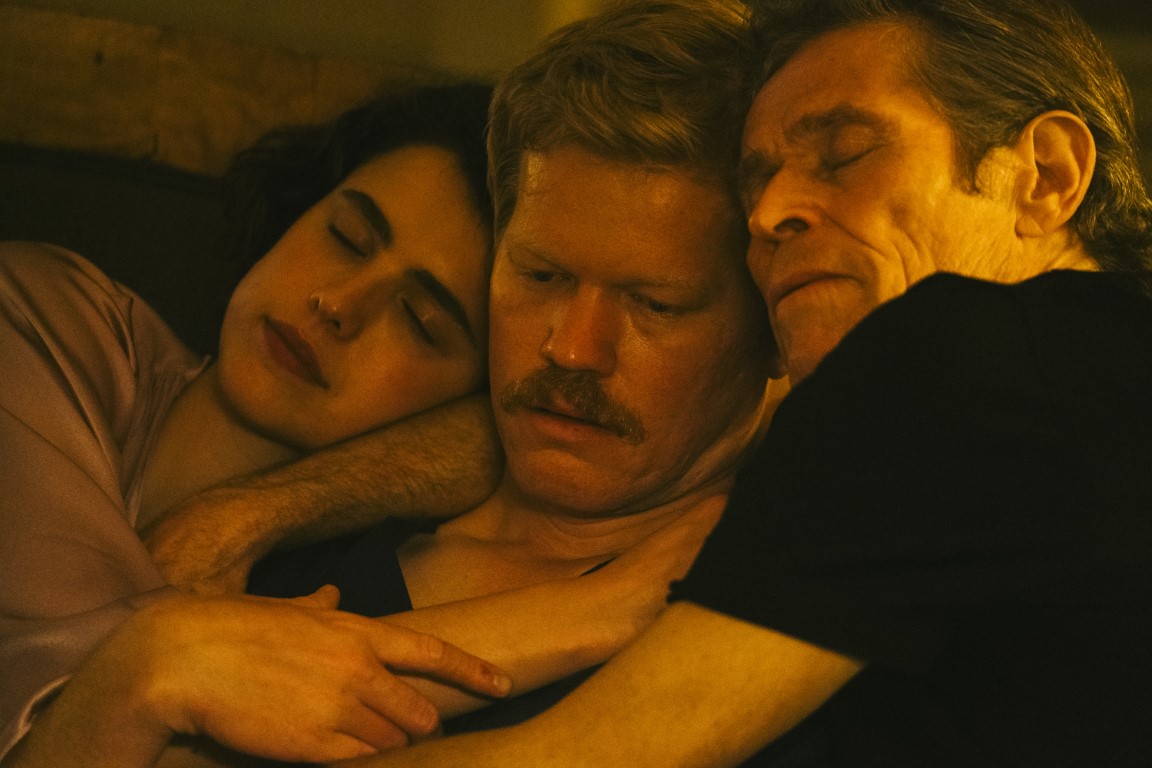
In “Kinds of Kindness,” you get three Jesse Plemonses (Jesses Plemons?) for the price of one. A darkly comic, deeply weird triptych from Yorgos Lanthimos, the film (which opens June 21) tells three separate stories, each of them starring Plemons, Emma Stone, and Willem Dafoe. In the first, Plemons plays Robert, a tightly wound man whose every action is dictated by his menacing boss, Raymond (Dafoe). The second features Plemons as Daniel, a cop whose wife (Stone) has returned home after being feared lost at sea—although he is convinced she’s not the woman he married. And in the final segment, he and Stone play colleagues hunting down a most unusual (perhaps nonexistent) individual with incredible powers.
None of the shorts is like the others and, likewise, Plemons luxuriates in different personas for each story. He’s rarely gotten to have as much fun in a film as he does here, and for his efforts, he won Best Actor at last month’s Cannes Film Festival, where “Kinds of Kindness” premiered. (It’s worth noting that Plemons’ wife, Kirsten Dunst, took home Best Actress from the festival 13 years ago for “Melancholia.”) It’s just the latest great turn from a performer who’s been on a roll lately between “Killers of the Flower Moon,” “The Power of the Dog,” “I’m Thinking of Ending Things,” and, of course, “Game Night.”
Plemons is not one to talk about process or himself all that much—one detects a shyness in him, or maybe just a refreshing modesty about not wanting to puff himself up too much. But during a Zoom interview earlier this week, he was relaxed and soft-spoken, constantly smiling and laughing as he reminisced about his time working on the dazzling, odd “Kinds of Kindness.” He also has some thoughts about being funny on screen and what it was like to be the “new kid” in Lanthimos’ ensemble of familiar faces.
Congratulations on winning Best Actor at Cannes for “Kinds of Kindness.” You were at the film’s premiere earlier in the festival but missed the closing awards ceremony. What were you doing at the time?
I had just finished a night shoot in New York and wrapped at four in the morning, went straight to the airport for a seven o’clock flight and was going home to see my family, my boys, which I hadn’t seen in a while because I was working, landed and turned my phone on to a bunch of texts, and had to go hang out with my kids and my wife. So it was nice.
Did you have any sense that you might win? It’s an open secret that the festival tips off the filmmakers whose movies will go home with a prize.
My only inkling came from my wife and my mom, who had done some investigating online and told me that there was a possibility—which I was thinking, “Oh my god, stop.” [Laughs]
How did you see your first Yorgos Lanthimos film?
My buddy Caleb Landry Jones, whom I’ve known since I was 18 or so, we were in a fictional band on the show “Friday Night Lights.” [We’re] always swapping things that we like—music and films and stuff like that. He said, “You have to see this movie ‘Dogtooth.’” That was my introduction. I was terrified and blown away and thought, “Who is this person that made this film?” I thought it was so brilliant—just one of those movies you say the title of, it does something to you, you know?
Many have noted that “Kinds of Kindness” feels like a throwback to Lanthimos’ earlier, nastier films like “Dogtooth.”
To me, it felt like both a return to the early days and also a bit of a step in a new direction. My other reaction was this is a script and a movie that could only be written and made by a brilliant director that’s had some success and thought, “Okay, you’re with me, right?” It’s not that he necessarily cares, but I think it felt like, all right, he had earned the right to really do something… Maybe even more so than some of his recent films, [it] really lives in the dream/nightmare-scape and playing with form. It was just really exciting and such a great unique challenge for an actor.
He had collaborated with many of these actors before “Kinds of Kindness.” Obviously, you’ve done plenty of great work, but how much of a “new kid at school” anxiety was there for you?
I definitely felt it. On the one hand, it’s comforting to be around people with this comfortability with each other—but then, it’s also you feel like you’re playing catch-up with the inside jokes. Throughout the rehearsal process, I felt like I was playing catch-up, but very quickly, you feel brought into the fold and a part of the troupe. Aside from the amazing actors he works with, the crew he’s worked with repeatedly over the years is just so incredibly talented. There is an odd, weird family atmosphere which, once you’ve worked through your new-kid-at-school feelings, it’s a lot of fun.
It didn’t take all that long to feel like we could cut to the chase quickly. He gives you a lot of space, and then he’ll also give you specific, easily digestible notes. It’s hard to articulate, but even with [my character] Robert, who is being so controlled by Raymond in every aspect of his life, it was, oddly, such a freeing experience as an actor.
How does he give notes? What are those conversations on set?
Yorgos is his own unique breed. What was intimidating in the beginning was that, because the script is so open to interpretation, [there’s] this catch-22: It requires you to make choices and bring your interpretation to it, but it also requires that you don’t get at all locked into that because, with every scene, there are a number of doors you could walk into it from.
There is a human aspect where you want to know, “Okay, we’re somewhere near the same page here, and this is somewhat resembling feeling like something that feels right to you.” But once that trust is there, you don’t need to say as much—you just kind of tell. But yeah, it’s always a process of—what do they say?—fucking around and finding out. [Laughs]
You’re known for your dramatic performances, but people love you in “Game Night,” which was a great change-of-pace comedic role.
I would love to find another comedy in the “Game Night” realm or some great character in a comedy. But I guess anything that I’ve done that’s at all comedic, I would say for the most part, unless you’re playing a comedian, it’s not necessarily funny to [the character]. I got to play this comedic sidekick in “Friday Night Lights,” and what was funny about him was just his very resolute convictions and opinions that were insane. But he fully believed them—and same with Gary from “Game Night.” What a very lonely man. [Laughs]
Lanthimos’ films are dark but they’re also very funny. With “Kinds of Kindness,” how much were you all thinking about the humor in these surreal scenarios?
Sometimes you rehearse something, and in the moment, a line strikes you as funny in a way that it hadn’t before—or other people laugh at the circumstances. But the type of comedic performances that I like all have to do with character and circumstances.
With [“Kinds of Kindness”], Yorgos kept insisting that this was a dark comedy, and for a while, I was like, [skeptical] “Okay…” [Laughs] And then, as we went on, especially with Robert in his desperation, I could start to see how there’s some humor there—and [with] Daniel’s delusion but absolute certainty. So, yeah, I guess some part of you knows that there’s [comedic] potential for it, but then you try to block that out. You can always tell when someone’s trying to be funny—sometimes it works, and they are. But I don’t know if I’m good at that type of comedy.
Certain [funny] things didn’t make it in because the movie’s already pretty long. There was some shot of me as Robert rearranging the furniture in this house—I was supposed to move this cabinet, hang this picture, take a step back, look at it, and change something else. We did one take of it, I moved the cabinet, moved the picture—and then, somehow, broke the picture frame. [Laughs] It just all went so wrong and got so sad and funny—[we] kept [filming] and it just devolved. As soon as the take was over, everyone just cracked up.
[There’s] a very specific type of human folly and ridiculousness in a lot of his work. It serves a real purpose because it’s how you can momentarily disarm the audience and then hit them with something really dark.

You have an amazing look as Robert. Tell me about the mustache and the turtleneck.
The mustache was Yorgos. I tried on the turtleneck in the first fitting. [Costume designer] Jennifer Johnson and I both fell in love with it, and it took some convincing [of Lanthimos]. But after the camera test, he signed off on it.
How did you convince him? What made you think, “Robert is a turtleneck guy”?
I don’t know… [mimics a turtleneck tight around his neck] It’s constricting—that just made sense. He’s like Raymond’s little poodle or something. [Laughs] There were a few wardrobe debates that took some convincing, but [as an actor] you have some idea in your head—and I won. [Laughs]
To your point earlier, what I love about “Kinds of Kindness” is that it feels like a flex on Lanthimos’ part. He’s having a blast spending the goodwill he’s accrued from “The Favourite” and “Poor Things” by doing something far darker, more ambitious—even off-putting and alienating. Was it liberating knowing that as you were making it?
There’s just so much out there to watch, so to find something that truly exists in its own weird universe, following its own weird rules, is incredibly exciting and liberating. From an acting-experience level, it’s the same as it always is, in some ways, and then, in some ways, you can throw so much of your previous thoughts about what it is out the window—it felt like stepping off a ledge every day, which sounds terrifying, and some days it was. [Laughs] Then, some days, it was just so exhilarating.
You really get comfortable with balancing those choices that resonate with you—that feel exciting or interesting—but also really getting comfortable with the scary unknown and just taking the leap and seeing where it goes… Everyone’s doing that, so it feels like a group exercise. It’s fun.
Tim Grierson is the Senior U.S. Critic for Screen International.
